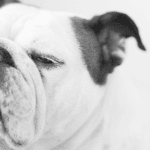Reverse sneezing in Dogs.
Some dogs have a condition which is commonly known as reverse sneezing. It’s scientific term is, paroxysmal respiration and, while it can look worrying, it is usually not harmful to the dog. This Holidays4Dogs provides further information on reverse sneezing in dogs.
When a dog suddenly starts to suck in air, this is known as reverse sneezing. This may be accompanied by snorting, or choking. It can be quite worrying for owners if they have not witnessed it before, because the dog can appear to be choking. However, reverse sneezing is not generally a cause for concern.
What causes reverse sneezing in dogs?
Reverse sneezing or, Paroxysmal respiration, can be caused by something irritating the nasal passages.
This might be something in the air, or a foreign body, such as a grass seed. It is also associated with eating, or drinking, too quickly.
The condition is more common in smaller breeds of dog. Brachycephalic breeds, such as pugs and bulldogs with shortened nasal passages, are also prone to reverse sneezing.
What does it look and sound like?
Typically, a dog will suddenly begin to noisily suck in air. This is often accompanied by a stiff, square stance, bent neck and bulging eyes. The dog may make choking sounds and the episode may include exaggerated swallowing movements.
Bouts can last from a few seconds, to a couple of minutes. As soon as it passes, the dog starts to breath perfectly normally again.
Reverse sneezing in dogs is considered to be the result of a throat and soft palate spasm, usually caused by some sort irritant. However, it can also be caused by the dog pulling on the lead, or becoming over excited.
There is usually nothing to worry about with occasional episodes of reverse sneezing. There is not much an owner can do at the time the dog is exhibiting the behaviour. However, some suggest rubbing the dog’s throat gently to help stop the spasm, or gently closing one nostril with the fingertip – (as long as this doesn’t cause the dog any stress ).
When to seek Veterinary Advice.
If your dog seems to have frequent bouts of reverse sneezing, make an appointment to see your vet who can rule out any serious underlying health issues, such as polyps, or tumours in the throat.
Thankfully, the vast majority of cases pose no long term health problems and therefore, owners need not be concerned about periodic bouts of reverse sneezing.



